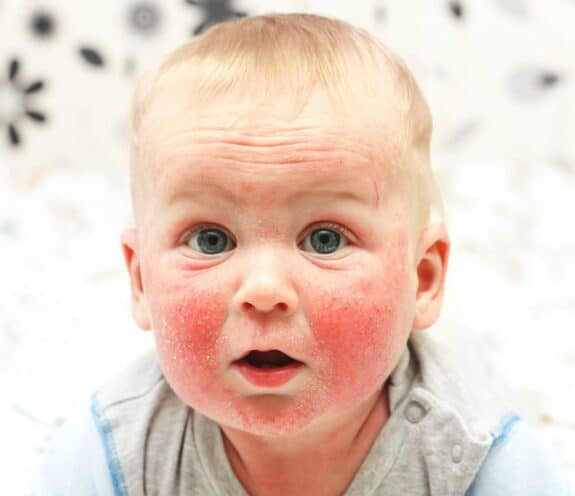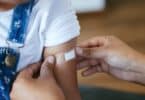German dietary and allergy prevention guidelines recommend exclusive breastfeeding for at least six months after a child’s birth. Some studies have suggested that this practice could reduce a child’s risk of developing allergies and eczema. Existing evidence is not conclusive, however. Researchers wanted more information on the correlations between early eczema, allergies in young adulthood, and the preventative ability of breastfeeding.
The study, “Full Breastfeeding and Allergic Diseases—Long-Term Protection or Rebound Effects?” analyzed data from 4,058 GINIplus study participants from birth until 20 years later. They gathered results on the prevalence of eczema, hay fever, asthma, and allergic rhinitis (AR). All results were documented by mothers and fathers in survey questionnaires and described based on physician-reported results.
Researchers also gathered breastfeeding data through weekly updated diaries. Infants that received human milk during the first four months of life were considered “exclusively breastfed.”
In total, 5,991 full-term babies from Wesel and Munich regions were included. Infants were born from June 1995 to June 1998. Mothers with chronic illnesses, such as diabetes, HIV, and other autoimmune illnesses were excluded. Only infants with an increased allergy risk based on a positive history in first-degree relatives were involved in the study.
Overall, a higher prevalence of early-life eczema was observed in the high-risk infants. Early eczema was accompanied by a higher prevalence of adult eczema. Allergic rhinitis and asthma were also persistently higher in adulthood if children suffered early-life eczema.
Although the analyses did not show a significant modifying effect, preventive effects of breastfeeding among infants with a history of allergies in the family are noted. However, the study authors indicated that further research is needed to evaluate long-term immune protection against allergic rhinitis and other allergies for children with familial risks.
Related Articles:







